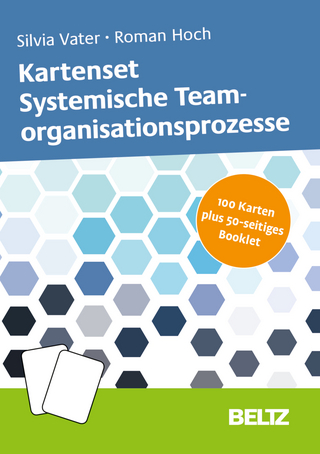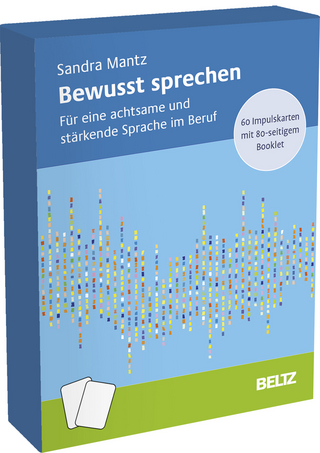
The Palgrave Encyclopedia of the Possible
Springer Nature Switzerland AG
978-3-030-90914-7 (ISBN)
- Titel wird leider nicht erscheinen
- Artikel merken
Far from being opposed either to the actual or the real, the possible engages with concrete facts and experiences, with the result of transforming them. This encyclopedia examines the notion of the possible and the concepts associated with it from standpoints within psychology, philosophy, sociology, neuroscience and logic, as well as multidisciplinary fields of research including anticipation studies, future studies, complexity theory and creativity research.
Presenting multiple perspectives on the possible, the authors consider the distinct social, cultural and psychological processes - e.g., imagination, counterfactual thinking, wonder, play, inspiration, and many others - that define our engagement with new possibilities in domains as diverse as the arts, design and business.
Vlad Petre Glaveanu is Associate Professor and Head of the Department of Psychology and Counselling at Webster University Geneva, Associate Professor II at Bergen University, Norway, and Director of the Webster Center for Creativity and Innovation (WCCI). His work focuses on creativity, imagination, culture, collaboration, and societal challenges. He received in 2018 the Berlyne Award from the American Psychological Association for outstanding early career contributions to the field of aesthetics, creativity, and the arts. Advisory Board: Alessandro Antonietti, Catholic University of the Sacred Heart in Milan, Italy Arjun Appadurai, New York University, USA Baptiste Barbot, Pace University, USA Ronald A. Beghetto, University of Connecticut, USA Kerry Chappell, University of Exeter, UK Edward Clapp, Harvard University, USAGiovanni Corazza, Bologna University, Italy Andrea Gaggioli, Catholic University of the Sacred Heart in Milan, Italy Alex Gillespie, London School of Economics, UKMichael Hanchett Hanson, Columbia University, USA Pernille Hviid, Copenhagen University, Denmark Sandra Jovchelovitch, London School of Economics, UK Maciej Karwowski, University of Wroclaw, Poland James C. Kaufman, University of Connecticut, USA Todd Lubart, Paris Descartes University, France Paul March, Oxford University, UK Luis de Miranda, Uppsala University, Sweden Alfonso Montuori, California Institute of Integral Studies, USA Takeshi Okada, University of Tokyo, Japan Jonathan Plucker, Johns Hopkins University, USA Roberto Poli, University of Trento, Italy Roni Reiter-Palmon, University of Nebraska Omaha, USA Mark Runco, University of Georgia, USA Joel Schmidt, University of Applied Management, Germany Zayda Sierra, University of Antioquia, Colombia Dean Keith Simonton, University of California, Davis, USA Robert Sternberg, Cornell University, USA Marie Taillard, ESCP Europe, UK Min Tang, University of Applied Management, Germany Frederic Vallee Tourangeau, Kingston University, UK Jaan Valsiner, Aalborg University, Denmark Jakob Waag Villadsen, University of Copenhagen Brady Wagoner, Aalborg University, DenmarkChristian Werner, Privatuniversitat Schloss Seeburg, Austria Tania Zittoun, University of Neuchatel, Switzerland
Abnormal.- Absent.- Actual.- Aesthetics.- Awe.- Anticipation.- Anticipation studies.- Artificial intelligence.- As-if thinking.- Bakhtin, Mikhail.- Bergson, Henri.- Bruner, Jerome.- Creativity.- Counterfactual thinking.- Culture.- Curiosity.- Dewey, John.- Divergent thinking.- Dystopia
Emergence.- Empathy.- Ethics.- Fantasy.- Fiction.- Free will.- Freud, Sigmund.- Future.- Future studies.- Games.- Heidegger, Martin.- Here and now.- History of the possible.- Hope.- Imagination.- Impossible.- Mead, George Herbert.- Nietzsche, Friedrich.- Perspective taking.- Piaget, Jean.- Play / Pretend play.- Poetry.- Polyphony.- Possibility thinking.- Potential.- Probabilistic thinking.- Real.- Reality.- Resistance.- Sartre, Jean Paul.- Science fiction.- Social change.- Symbolic function.- Symbols.- Opportunity.- Technology.- The possible in anthropology.- The possible in architecture.- The possible in art.- The possible in business.- The possible in community work.- The possible in design.- The possible in economy.- The possible in education.- The possible in human development.- The possible in linguistics.- The possible in logic.- The possible in mathematics.- The possible in neuroscience.- The possible in philosophy.- The possible in psychology.- The possible in religion.- The possible in sports.- The possible in sociology.- Utopia.- Virtual.- Virtual worlds.- Vygotsky, Lev.- Wander.- What-if thinking.- Wittgenstein, Ludwig.- Wonder.
| Mitarbeit |
Chef-Herausgeber: Vlad Petre Glaveanu |
|---|---|
| Zusatzinfo | 5 Illustrations, color; 5 Illustrations, black and white; 1000 p. 10 illus., 5 illus. in color. Print + eReference. |
| Verlagsort | Cham |
| Sprache | englisch |
| Maße | 155 x 235 mm |
| Themenwelt | Geisteswissenschaften ► Philosophie |
| Geisteswissenschaften ► Psychologie ► Arbeits- und Organisationspsychologie | |
| ISBN-10 | 3-030-90914-X / 303090914X |
| ISBN-13 | 978-3-030-90914-7 / 9783030909147 |
| Zustand | Neuware |
| Haben Sie eine Frage zum Produkt? |
aus dem Bereich


